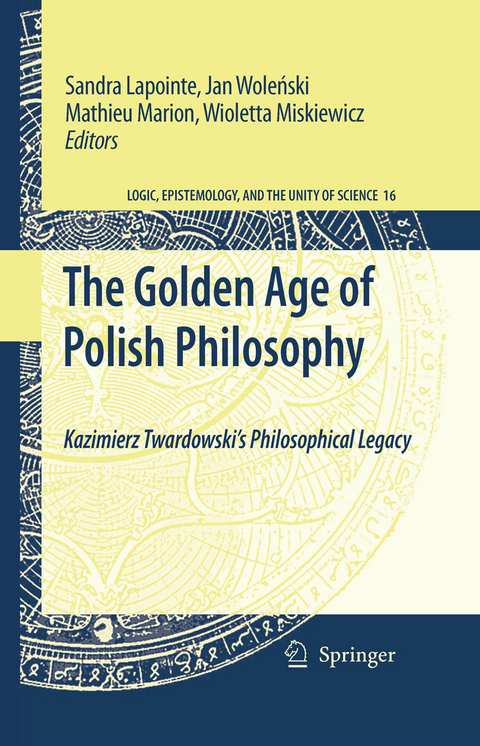
The Golden Age of Polish Philosophy
Springer (Verlag)
978-90-481-8496-5 (ISBN)
Twardowski and Polish Scientific Philosophy.- Polish Metaphysics and the Brentanian Tradition.- The Genesis and History of Twardowski’s Theory of Actions and Products.- The Rise and Development of Logical Semantics in Poland.- French and Polish Conventionalism.- Philosophy of Logic and Mathematics.- A Philosophy of Many-Valued Logic. The Third Logical Value and Beyond.- Le?niewski’s Systems and the Aristotelian Model of Science.- Le?niewski, Negation, and the Art of Logical Subtlety.- Philosophy of Mathematics in the Lvov-Warsaw School.- Tarski’s Engagement with Philosophy.- Tarski on Definition, Meaning and Truth.- Polish Philosophy of Mind.- A Note on Henryk Mehlberg’s Contribution to the Debate on the Mind-Body Problem.- Leopold Blaustein’s Analytical Phenomenology.- Around Twardowski’s School.- Nonclassical Conceptions of Truth in Polish Philosophy at the Beginning of the 20th Century.- Leon Chwistek’s Theory of Constructive Types.- Konstanty Michalski on Late Medieval Nominalism.- Jan Salamucha’s Analytical Thomism.
| Reihe/Serie | Logic, Epistemology, and the Unity of Science ; 16 |
|---|---|
| Zusatzinfo | X, 254 p. |
| Verlagsort | Dordrecht |
| Sprache | englisch |
| Maße | 155 x 235 mm |
| Themenwelt | Geisteswissenschaften ► Philosophie ► Geschichte der Philosophie |
| Geisteswissenschaften ► Philosophie ► Logik | |
| Geisteswissenschaften ► Philosophie ► Philosophie der Neuzeit | |
| Geisteswissenschaften ► Philosophie ► Sprachphilosophie | |
| Naturwissenschaften | |
| ISBN-10 | 90-481-8496-7 / 9048184967 |
| ISBN-13 | 978-90-481-8496-5 / 9789048184965 |
| Zustand | Neuware |
| Haben Sie eine Frage zum Produkt? |
aus dem Bereich


